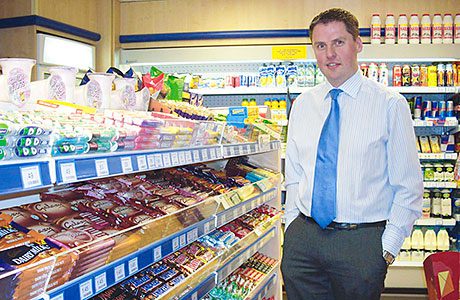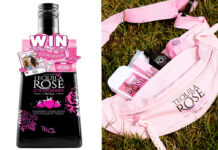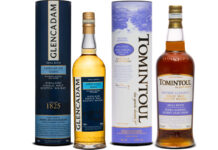HOW do you define a c-store and which products and services should be considered essential to a typical convenience store’s existence?
Well, the grocery industry research and education charity IGD, has a set of criteria that it uses to sum up c-stores. A convenience store should have a trading area of less than 3,000 sq ft and it should feature at least seven out of a list of important products and services, including: alcohol; bakery; canned and packaged grocery; chilled food; confectionery; frozen food; fruit and vegetables; health and beauty; hot food-to-go; household; National Lottery; milk; newspapers and magazines; non-food items; sandwiches; savoury snacks; soft drinks and tobacco.

But, of course, that list, in itself, recognises that there are many types of c-store. While most convenience outlets will be under 3,000 sq ft there are now a number of large independent small supermarkets that are effectively scaled-up c-stores. And, at the other end of the scale, there are many units that squeeze a full c-store service into considerably less than 1,000 sq ft.
What’s essential to your store will depend most on your customers and the shop’s general catchment area. But your key lines and services might also be defined by your competition. If you have a huge supermarket down the street you might sell a bit less fresh produce than might otherwise be the case, for example.
We spoke to operators of two Scottish c-stores to find out which categories they saw as the most important to their businesses.
Chris Cobb, owns the 850 sq ft Cults Stores (Keystore) in Cults, a well-to do district of Aberdeen.
He’s a Scottish Grocer Award-winning tobacco retailer. When he took over the store, which was effectively a CTN with a successful trade in delivered newspapers, he joined up with Keystore and set about augmenting the range, bringing in a number of classic c-store lines.
But he has a large, relatively recently developed Tesco Express nearby and that has had an effect on his sales mix.
“Milk and bread are important, even though we don’t sell masses of bread,” he said.
“I think, for me, what’s important are local bakery products. I think that’s a lot to do with our customer base. We’ve got a Tesco Express beside us, and a Costcutter as well, so we need to try to be different.
“I think it depends on what your competition is and where you’re situated as to what will be the important lines.
“One of the big things for us is confectionery, and obviously tobacco as well.
“The grocery side of the business such as tea, coffee and stuff has really dropped since the Tesco came. We’re giving less space to that and giving more space to our pound zones and pound bags of sweets.
“Before it was pasta, tea, coffee, all that kind of stuff.
“We still have that, but not such a massive range, we just stick to the key lines.
“But the pound zones are doing very well. That’s to compete with the supermarkets and obviously the £1 discounters like Poundland and all those types of stores. Customers see that they’re getting value for money,” he said.
“I think you really need to go with that kind of stuff. We started off with Keystore and we only had two shelves of pound lines, then we started to realise what was happening so we then moved it to a full one-metre bay, plus we’ve got a wee bit more now as well. Your margins are less in it, but I really think you’ve got to offer that kind of stuff as well now. Especially when you’ve got a lot of competition,” he said.
“People are coming to us for top-up shops rather than the full thing.
“We do sell ready-meals and things like that but we don’t have a massive range, purely again because we’ve got so much competition round about us. We’re selling a load of pies and things just now, which we get from our local bakery and lately we’ve been selling more to our regular customers, not just to school kids. They’re taking them home for lunch or tea and you wonder if that’s a more cost-effective way of shopping because people are watching their money.
“You just have to warm them up, so we’re finding pensioners are buying them and taking them home more and more now. If you’re just on your own then this way you’ve not got to muck about doing a big fancy meal or anything.
“Tobacco is doing OK, it’s slightly up. Obviously price is involved in that. Tobacco sales are up about 6% or 7% on last year. Confectionery is doing very well, it’s up about 8% or 9% on last year.
“We wonder if it’s more to do with the £1 bags and other things like that, where obviously you’re gaining the sales with less profit but it’s getting people in the door and they’ll maybe buy other stuff as well.
“Electronic cigarettes are OK, they’re ticking away. We do Nicolites which we’ve done for a while, sales of electronic cigarettes count for 6% of our total tobacco and e-cig sales. Instead of getting a 5% margin you’re getting a 40% margin on electronic cigarettes, so we’re quite happy about that.”
• Christina Petrogianni, store manager of the large Day-Today store in Wallyford, on the outskirts of Edinburgh, sees one particularly essential category – beers, wine and spirits.
“The most important product for retailers to stock in a convenience store, from my experience in this store, would be alcohol, that’s one of the good sellers.”
But it certainly isn’t all about drink at the Wallyford Day-Today.
Other local consumer favourites include chocolate and other confectionery, crisps, hot food to go, coffees and “anything that would make up a small lunch pack”, she said.
Grocery lines and fruit and vegetables are popular with local housewives, especially the mums, and household products do well too.
“This store has been open less than a year and it’s been a fantastic year,” she said.
“We have regular customers who come in for the weekly shop and people doing a top up.
“Ready meals are selling much better than fresh produce, in this community ready meals are going quite quickly, especially frozen products, that seems to be what people want.
“Tobacco is another big seller, bread and milk are doing very well.
“People come in for those in the morning and by 9am we’re having to refill the shelves because the stock is getting low,” she said.

















